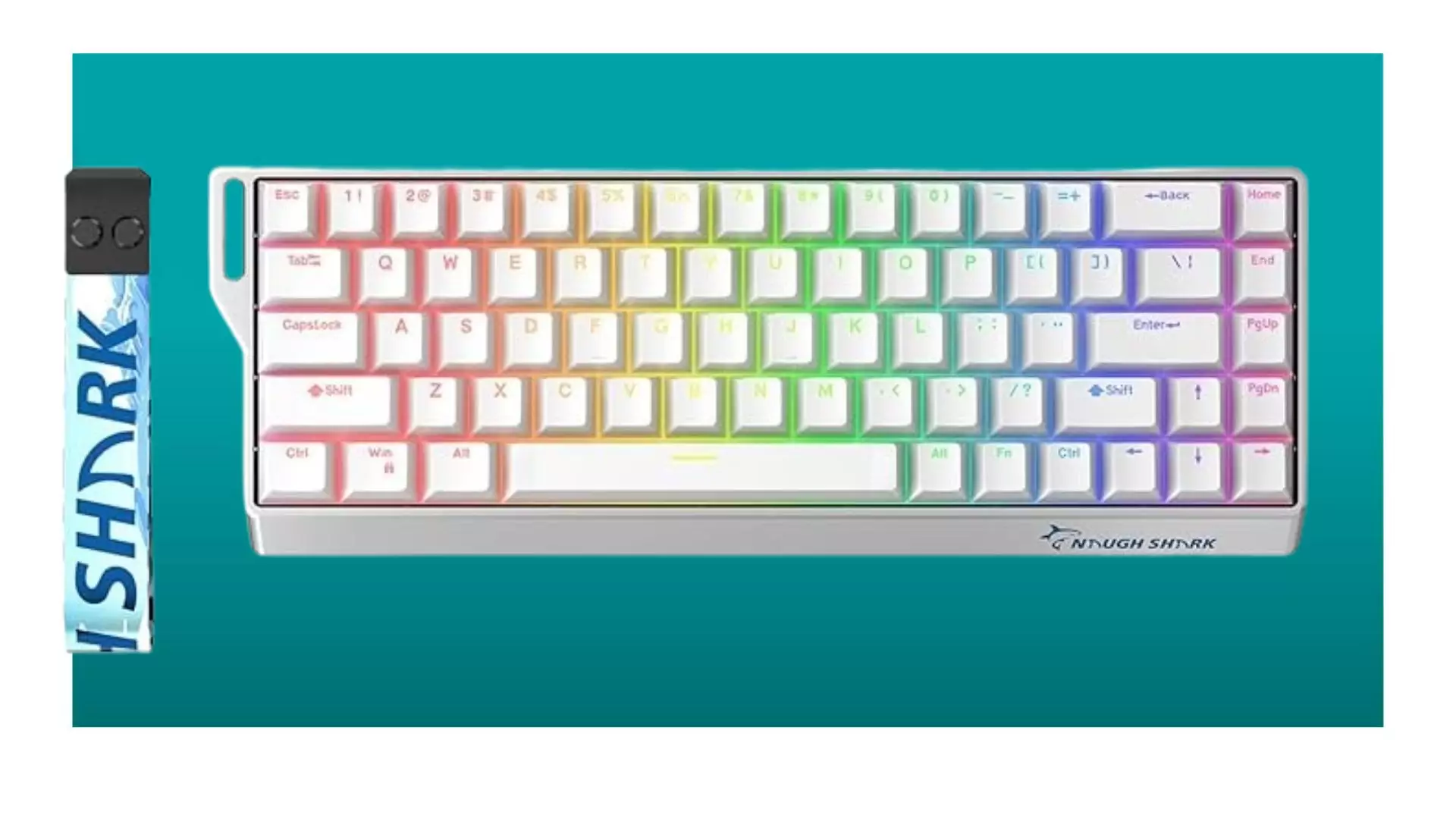In a market flooded with gaming keyboards boasting flashy features and exorbitant prices, the Gamakay X Naughshark NS68 emerges as a refreshing contender rooted firmly in practicality. Its affordable price tag, hovering around $38 during sales, challenges the notion that quality must come with a hefty price. While some might dismiss it as a budget buy, the thoughtful integration of features like Hall effect switches and rapid trigger technology reveals a device designed for gamers who seek performance without breaking the bank. The design, though primarily plasticky and somewhat lightweight, offers a sense of purpose: delivering core gaming functionalities in a compact, accessible package. It’s not a luxury model, but a reliable workhorse built for those who prioritize performance metrics like latency and responsiveness over opulence.
What makes the NS68 stand out isn’t just its affordability but its performance characteristics. The core mechanics—Hall effect switches—are known for durability and consistency, making them suitable for intense gaming sessions. The inclusion of an 8 KHz polling rate and a claimed latency of just 0.125 milliseconds might seem like marketing fluff to casual users, but for competitive gaming, these numbers translate into real, tangible advantages. The rapid trigger feature, which registers key presses the moment they are released, offers a competitive edge in precision-based games such as Counter-Strike 2, where milliseconds matter. Moreover, it enhances button mashing and quick-time events, making it versatile beyond first-person shooters.
Practical Performance Versus Perceived Quality
Despite the impressive technical specifications, the physical feel of the NS68 does contribute to a mixed impression. The rattling of the keyboard in the review suggests a certain fragility, rooted in its budget-friendly construction. While the switch to a more premium feel may be desirable, it’s crucial to recognize that this model’s core offering is performance. For gamers who are used to handling high-end mechanical keyboards with hefty build quality, the NS68 might seem lacking. Yet, in the context of its price point, it delivers a commendable performance that many competitors fail to match—if only it were built with a slightly more robust chassis.
Interestingly, the platform’s flexibility shines through the hot-swappable switches, allowing enthusiasts to customize their experience long-term. This feature is often reserved for premium keyboards, but Gamakay has democratized it here. For those who dislike the sound or feel of their switches, swapping them out becomes a viable way to tailor their setup without investing in an entirely new keyboard. However, the software remains a weak link—clunky, unintuitive, and limited in scope. This is a significant flaw for users who rely on customizable macros or advanced programming. Nevertheless, the core hardware capabilities compensate for this minor inconvenience.
Strategic Value and Practical Implications
When considering whether to purchase the NS68, price performance becomes paramount. At its baseline, the keyboard offers features typically reserved for more expensive models, making it an exceptional value proposition. The partial discount enhances its appeal, especially for budget-conscious gamers who still demand competitive edge. The wireless version available for around $50 at the Gamakay website further extends its versatility, offering cable-free convenience—a rare feature at this price point.
However, it’s important to be critical of the compromises involved. The rattling and plasticky feel serve as reminders that this is a mass-produced device crafted to hit a specific price point. Yet, from a pragmatic perspective, these drawbacks are minor when weighed against the performance benefits. The rapid trigger, high polling rate, and durability of Hall effect switches cater to serious gamers eager to shave milliseconds off their reaction times.
Ultimately, the Gamakay X Naughshark NS68 acts as a testament to the idea that exceptional gaming hardware doesn’t need to come with a premium sticker. While it may not satisfy every aesthetic or tactile preference, it succeeds in delivering core performance metrics—something that can elevate casual players into competitive territory. For those willing to accept minor physical imperfections and software quirks, it’s an unexpectedly powerful tool in the modern gamer’s arsenal.

